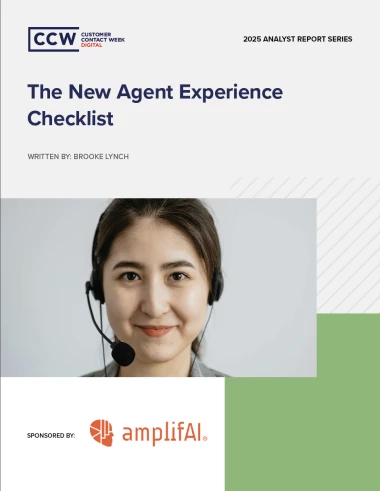Where Airbnb Went Wrong
Once the premier travel experience, Airbnb has inadvertently positioned itself as a riskier option than hotels by failing to invest in a brand-wide guest experience.
Add bookmark
Airbnb suffered a major loss in valuation earlier this month following the release of the company’s Q2 performance. By most financial standards, Airbnb has seen significant growth and profitability year over year. Yet even with the expanded Nights and Experience offerings, Airbnb reported a Q2 net income almost $100MM under Q2 2023. While the factors that contributed to this devaluation are varied and many, the devaluation itself did not come as a surprise.
After turning the hospitality industry on its head, Airbnb was positioned as the best option for leisure travel in the 2010s. Guests could enjoy a wide range of amenities, complete privacy, and location specificity that hotels just couldn’t offer, all at a similar price point. With the number of hosts rising into the millions and still climbing, the public sentiment of what it really means to stay in a stranger’s home began to shift towards negative. For every handful of positive anecdotes you hear about someone renting an Airbnb, there’s a nightmare scenario that is shocking enough to send you back to the Marriot without a second thought.
To some, it may seem unreasonable to hold Airbnb to the high standard of eliminating these “nightmare” experiences altogether. Of course, there isn’t a company on earth that can guarantee respect and decorum from everyone they do business with. But when things go wrong at an Airbnb — for guests or for hosts — it can quickly become a matter of personal safety and risk of damage to your most valuable possessions. This type of negative experience often turns customers off a brand for good, so Airbnb has become adept at ensuring these accounts stay buried.
Customer experience is not the priority
The issue with Airbnb is not that the median experience isn’t a positive one, it’s how negative the poor ones can be. Airbnb entrusts the maintenance of the experience to the host, which means they remove themselves as the first line of defense for mitigating a negative situation. The entire business hinges on the assumption that most guest-host exchanges will be conflict-free and resolvable. Airbnb also provides its own insurance protection plan, Aircover, to minimize the number of conflicts that will require outside mediation or legal counsel. Because Airbnb has no formidable competitors and doesn’t allow listing with other travel agencies, these negative guest experiences are shrouded in secrecy. Their entire approach to customer experience is a reactive one, in the hope that hosts will provide a positive experience and Airbnb will simply reap the profit or, if not, pay to make the problem go away.
Unfortunately, Airbnb seemingly fails to prepare their hosts for the job of providing a truly exceptional customer experience, yet this is what Airbnb promises as a pillar of service. The hosting resources guide you through setting up your dwelling for guests and understanding the payment structure, but what they don’t share is real insight on delivering a white-glove experience for customers. By focusing their content primarily on the logistics and mechanics of hosting, prospective hosts are led to believe that the guest experience is only one component, and not the driver, of the Airbnb business.
In perusing the hundreds of pages in the online resource guide, very few of them provide hosts with actionable insights about how to create an exceptional guest experience. Airbnb seems focused on growth, particularly in increasing the number of hosts, as one of their three strategic goals for 2024 is “to make hosting mainstream.” And yet many of these host resources are extremely basic, short articles with tips like “read guest reviews” and “fluff pillows to make your home more inviting.” This surface level information sends a message to hosts that creating a guest experience is little more than aesthetics and pleasantries.
Opportunities for growth
Airbnb is an incredibly lucrative company with the capital to invest in more advanced customer experience technology ten times over. The keystone of a customer experience overhaul would include a transition from reactive to proactive, starting with a more robust voice of the customer and social listening program. This approach has already served Airbnb well in at least one instance. In late 2023, numerous guests began taking to social media with harrowing stories of finding cameras inside their Airbnb accommodations, or otherwise suspecting they were being filmed. Indoor security cameras seemed to be some hosts’ response to the concern of parties or damage to their property. This mounting paranoia on social media precipitated a ban on indoor security cameras earlier this year. If only Airbnb would extend this practice into analyzing the millions of detailed reviews and social media posts, their findings might inform truly valuable hosting resources.
The most uninspiring aspect of Airbnb’s platform is its disorganized resource center. A knowledge management system could allow hosts to navigate through a learner’s journey that encompasses every aspect of hosting. In fact, Airbnb should consider making such training mandatory for all hosts in order to ensure the guest experience standards they’re setting forth are understood and actionable by their hosts. When paired with an advanced VoC, prospective hosts would receive fundamental customer experience training, supplemented by personalized insights that are specific to their location and guest market.
Making the hosting experience slightly more involved in order to make the guest experience frictionless would be a worthy trade off for Airbnb. Many short term rental markets are becoming oversaturated, and rather than treating their hosts as their own economic ecosystem, Airbnb could use mandatory training and heightened restrictions on poorly performing hosts. By mandating this standard of customer experience across all accommodations, Airbnb is likely to remain on its successful trajectory and solidify itself as a more desirable alternative to hotels.
Image by Ben Mack on Pexels.




























